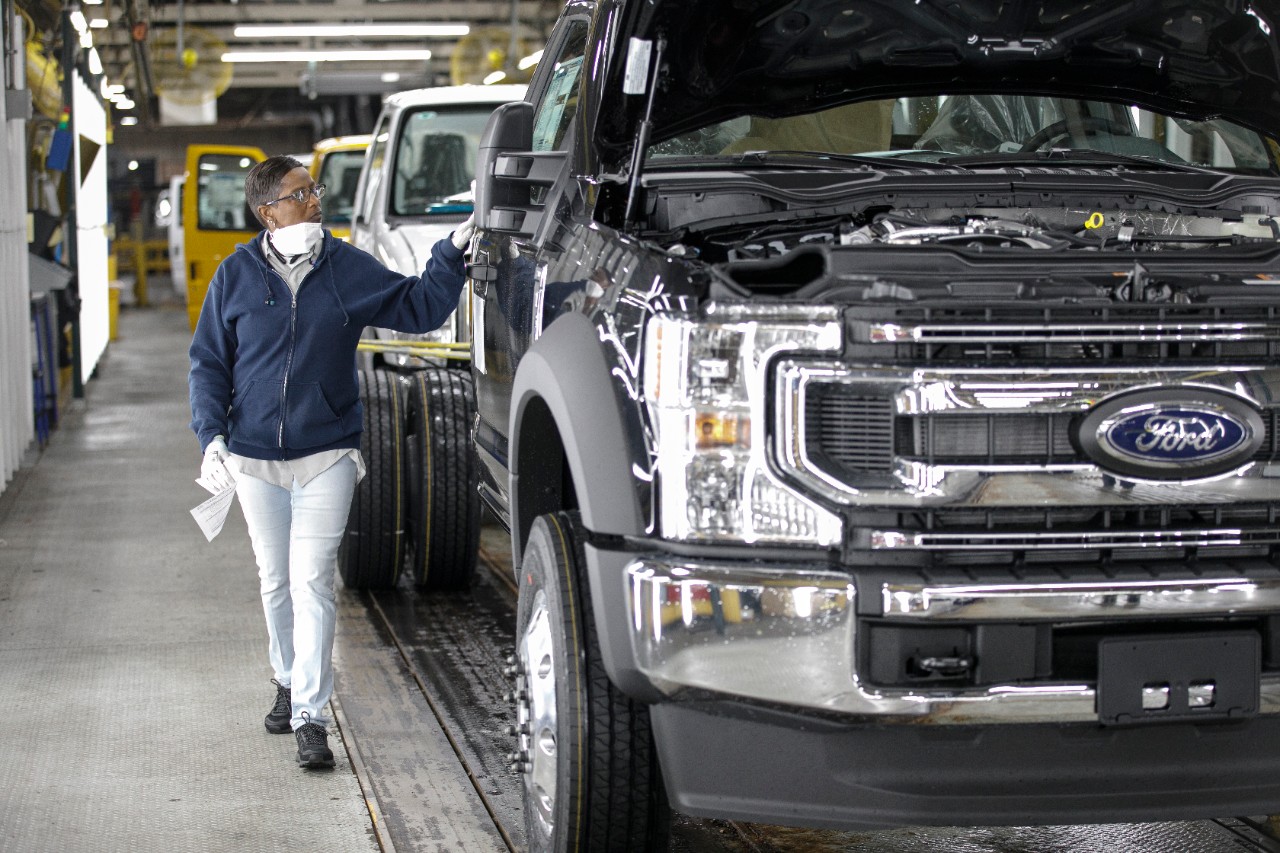According to Bank of America Merrill Lynch in its annual "Car Wars" survey, Ford (F 0.79%) and Honda (HMC 1.59%) are both planning on introducing new vehicle models at a faster pace than the rest of the competition. Just a few of these include new models of Ford's Fiesta and Fusion coming out, as well as the long-awaited newly redesigned Mustang and F-Series.
For Honda, the all-new HR-V, which already debuted in Japan as the Vezel, and the redesigned Fit comprise some of the new vehicles hitting the U.S. Due to this rapid-fire plethora of new offerings, many speculate that Ford and Honda will be able to boost their respective market shares in the U.S.
Ford falls back to regroup
Ramped-up market share is especially beneficial to Ford after a lackluster sales report in June, compared to other major car manufacturers. Ford's U.S. sales in June decreased by 6% from last year, compared to an increase of 9% for Chrysler and 1.2% for the U.S auto market overall. The cause for these weak sales, however, seems to be the result of consumers waiting for the new models to come out before purchasing a new vehicle -- the very reason Merrill Lynch is predicting future growth for Ford.
Beyond consumers biding their time, however, in a recent article from The Wall Street Journal, Ford claimed that "it expects to lose market share in 2014 due to extended shutdowns at truck plants while it installs new equipment."
This loss of sales for Ford could lead to a short-term "adverse mix," wherein Ford would sell a larger proportion of its low-margin vehicles, such as the Fusion, Escape, or C-max, as compared to its extremely profitable F-Series trucks. Fortunately, the problem will be resolved once Ford's truck plants are retooled, so long as the new and improved truck is readily adopted by consumers.
Ford's all new F-150. Source: Ford Motor Company.
Honda is fit for growth
Honda may have the upper hand on Ford for introducing new models because Ford must completely shut down its manufacturing plants for 13 weeks in order to retool for the new F-150, while Honda will continue manufacturing at full speed. In addition, Honda earlier this year opened a new plant in Mexico, which will produce 200,000 vehicles per year when it reaches full capacity later this year.
Ford and Honda are snapping up market share in China
According to a recent article in the Wall Street Journal, the Chinese car company BYD "is still heavily dependent on sales of traditional gasoline cars, and those are declining as more Chinese consumers flee to higher-quality foreign brands." Out of all new vehicle sales in May, Chinese automakers' models made up 21.5%, already 5.1% less compared to sales in last May.
The small opening in the Chinese market comes at an especially opportune moment for Ford. While Ford supplies some of the best-selling vehicles in specific categories, such as the Focus compact, Ford's market share in China was a mere 4.4% in 2013. Ford is also in the process of introducing its luxury Lincoln brand to the Chinese market in the second half of 2014, which could end up hugely successful if sales grow at the rate of General Motors' (GM 1.71%) Cadillac division. Sales of Cadillac climbed 67% last year in China, hitting a total of 50,000 vehicles. These growth figures are important to Ford because the Lincoln and Cadillac brands share the similarity of being the luxury brand for each company.
General Motors is the second largest automaker in China, after Volkswagen, but it has a distraction on its hands: all those recalls. GM has already broken its record for number of recalls in a full year, with over 28.5 million vehicles recalled worldwide this year. These recalls have cost the company around $2 billion so far this year. This number is almost sure to increase as the legal battle begins.
Ford has experienced some recall trouble as well, recalling over four million vehicles this year in the U.S. While this is certainly troubling news for Ford, these recalls pale in comparison to GM's in terms of cost and severity. No deaths have been reported as a result of Ford's faulty vehicles, compared to at least 13 deaths as a result of GM's defects.
Ford and Honda are preparing for sales to take off
While sales at Honda and Ford might be lagging behind their peers at the moment, if new and redesigned models such as the Honda HR-V and Fit, and Ford F-Series and Mustang, turn out to be hot commodities with consumers, then both companies should soon be climbing the sales charts.
Just as important for the future of these companies, growth should take place not only in the U.S., but also in China as consumers flee from homegrown brands to the purportedly higher-quality foreign vehicles.









